




| ENERGY
|
GAIN ENERGY APPRENTICE
LEVEL1
|
THE ENERGY BLOCKAGE REMOVAL
PROCESS
|
THE KARMA CLEARING
PROCESS APPRENTICE LEVEL3
|
MASTERY
OF RELATIONSHIPS TANTRA APPRENTICE LEVEL4
|
ZEN: THE PATH OF PARADOX VOL. 3
Chapter 5: A Master Echoes You

Energy Enhancement Enlightened Texts Zen Paradox, Vol. 3
A MONK ASKS, "WHAT IS THE BUDDHA?"
TOSU (THE MASTER) ANSWERS, "THE BUDDHA."
MONK: "WHAT IS THE TAO?"
TOSU: "THE TAO."
MONK: "WHAT IS ZEN?''
TOSU: "ZEN."

MY FIRST EDITION BOOK OF OSHO'S ZEN THE PATH OF PARADOX WHICH I HAVE READ FOR OVER 25 YEARS - READINGS OF POSITIVITY FROM A ENLIGHTENED MASTER WHICH GO DEEP INTO YOU..
TRUTH CANNOT BE SAID, BUT ONE CANNOT be silent about it either. Truth cannot be said because words are inadequate. You cannot be silent about it either, because silence is also inadequate. Words are noisy, true; they make much fuss, much noise and say nothing. Silence is just the absence of noise. If the positive noise cannot say anything, how can the absence say anything? Silence is just absence. If even the positive is impotent, how can the negative be potent?
The second thing has to be understood very well, because there have been many schools and many philosophers who think that truth cannot be said; so they keep silence. But you cannot say it even through silence. Silence may show only that are inadequate, that's all. But the silence cannot be enough. And there is a danger: the silence may be sheer ignorance. Too many words create one danger -- the man becomes a parrot, a pundit, or a professor. Silence can create a sort of humbug. There are people who keep silent, and others think that they must have come to know because they are silent.
Once a man came to me -- many years have passed since then -- and he said, "I have been to Baba Muktananda Paramhansa. I asked a few very fundamental questions, and he kept silent -- he is a great man, he knows."
The same day, I was leaving for another town, so I told the man, "You come with me, and for three days you be silent with me. And I will see." I gave him orange clothes; he was my first sannyasin -- a bogus, humbug sannyasin. And I told him, "For three days you will be Baba Chuktananda Paramhansa."
He said, "Never heard of this name, Chuktananda."
I told him, "I also have not heard it. I have just coined it this very moment. 'Chukta' means one who has paid all his debts. You are free, utterly free. Your world has come to an end."
And he asked me, "Then what have I to do?"
I told him, "You have nothing to do at all. You keep silent, you simply sit. All that is needed I will do. If somebody asks you something, you can make any gesture, or you can close your eyes, or you can look upwards or downwards whatsoever you feel. But don't utter a word."
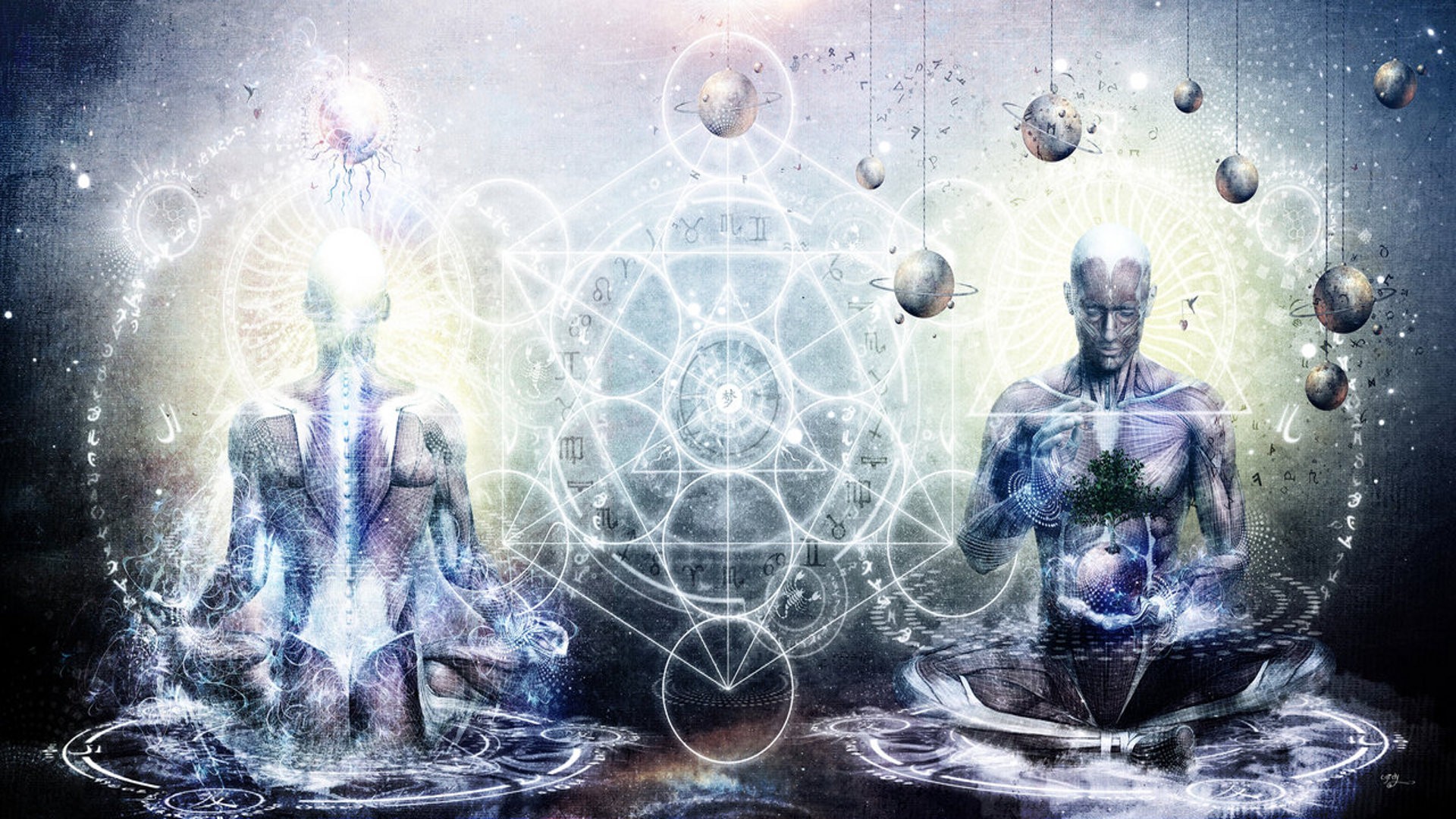
And in three days the whole town was worshipping him. In the night he was allowed -- when everybody had left -- he could talk to me. He would hold my legs and he would say, "Osho, what are you doing? I feel so embarrassed when people touch my feet," he would say. "And so many people! What has gone wrong? How do you manage it?"
Once they came to know that he had attained and he keeps silence -- that's enough to convince people. People are so foolish. Either they are deceived by words or they are deceived by silence -- but they are deceived either way.
There is a famous Zen story. I would like to tell it to you.
A monk called himself the 'Master of Silence'. He was actually a fraud and had no genuine understanding. To sell his humbug Zen, he had two eloquent attendant monks to answer questions for him; but he himself never uttered a word, as if to show his inscrutable 'silent Zen'.
One day, during the absence of his two attendants, a pilgrim monk came to him and asked: "Master, what is the Buddha?" Not knowing what to do or to answer, in his confusion he could only look desperately round in all directions -- east and west, here and there -- for his missing mouthpieces.
The pilgrim monk, apparently satisfied, then asked him: "What is the dharma, sir?" He could not answer this question either, so he first looked up at the ceiling and then down at the floor, calling for help from heaven and hell.
Again the monk asked: "What is Zen?" Now the Master of Silence could do nothing but close his eyes.
Finally the monk asked: "What is blessing?" In desperation. the Master of Silence helplessly spread his hands to the questioner as a sign of surrender.
But the pilgrim was very pleased and satisfied with this interview. He left the 'Master' and set out again on his journey.
On the road the pilgrim met the attendant monks on the way home, and began telling them enthusiastically what an enlightened being this Master of silence was.
He said: "I asked him what Buddha is. He immediately turned his face to the east and then to the west, implying that human beings are always looking for Buddha here and there, but actually Buddha is not to be found either in the east or in the west.
I then asked him what the dharma is. In answer to this question he looked up and down, meaning that the truth of dharma is a totality of equalness, there being no discrimination between high and low, while both purity and impurity can be found therein.
In answering my question as to what Zen was, he simply closed his eyes and said nothing. That was a clue to the famous saying:
'If one can close his eyes and sleep soundly
in the deep recesses of the cloudy mountains
he is a great monk indeed.'
Finally, in answering my last question, 'What is the blessing?' he stretched out his arms and showed both his hands to me. This implied that he was stretching out his helping hands to guide sentient beings with his blessings. Oh, what an enlightened Zen Master! How profound is his teaching!"
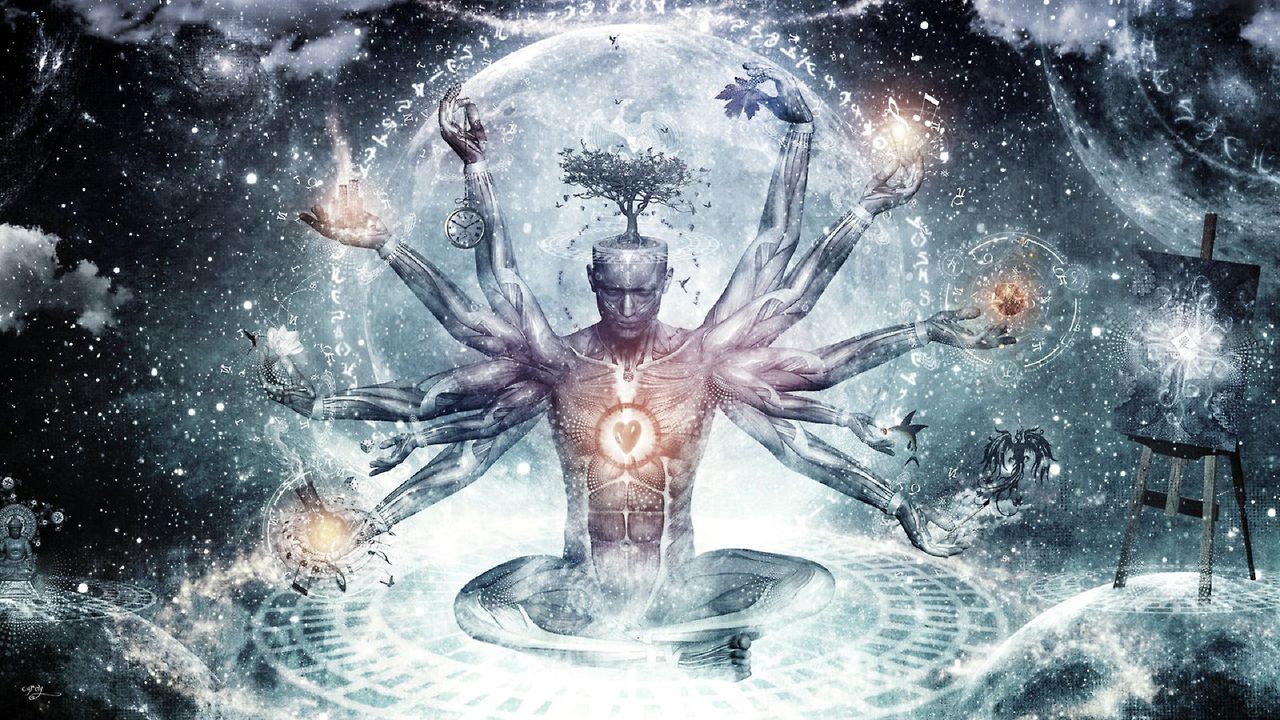
When the attendant monks returned, the 'Master of Silence' scolded them thus: "Where have you been all this time? A while ago I was embarrassed to death, and almost ruined, by an inquisitive pilgrim!"
The same happened to Baba Chuktananda Paramhansa. People would ask, he would sit silently, he would look here and there, or up or down, or would close his eyes, and I would explain to them what he meant. And in those three days, by and by, I became secondary; Chuktananda became more important, I was just an interpreter. And people found great peace showering from Chuktananda.
People are stupid! Either they start clinging to the word, to the letter, or, if somehow they drop the word, the letter, they start clinging to the opposite.
But truth is neither in words nor in silence. Truth is a transcendence. Truth is a transcendence of duality. Silence is part of the dual game of the mind. Mind is not only words. remember. Between two words there is a small gap where mind is silent. Mind is both -- words and silence crisscrossing. Each word is followed by silence, and each silence is followed by a word.
When you are thinking, one thought comes, then a gap. Otherwise one thought will be overlapped by another, there will be a great confusion -- the gap is needed. Then comes another thought. It is just like when you stand on the road watching traffic. One car passes by, then a gap passes! You don't see the gap because you can't see the gap. One car passes by, then a gap passes, and then another car. If there is no gap, there will be a clash between two cars, there will be an accident. The gap is always there. The gap is as much part of the traffic as the cars.
Exactly the same is the case with mind. Words, noise, so-called silence, are both parts of the mind.
There is another kind of silence which has nothing to do with mind. That silence is not absence of noise, it is presence of the unknowable -- a totally different quality: not the absence of noise, but the presence of God, or the presence of the whole. That silence is not a dead silence; that silence is very much alive, vibrating, full of joy, showering bliss all around, overflowing with love. And you can see the difference.
When a person is simply silent in the sense of no word, absence, you will see dullness. You will see a kind of sleep surrounding him. You will see a kind of stupidity, a torpor. This kind of man will not be intelligent. You can find this kind of paramhansa in many places in India. To be a humbug mahatma is so easy. You don't have to do much. Even if you can keep silent -- at least in the daytime -- that will do. Not a big practice, a small thing.
Silence that is absence is dull; silence that is presence of the Divine, God, truth, Tao, or whatsoever name you like, has a totally different quality to it. It blooms, it blooms in a thousand and one flowers. It has a fragrance, it is young, it is fresh; it is not dull and dead. It is not the silence of the cemetery. It is the silence where life is happening, but happening very silently.
So remember this difference: words cannot say anything about truth, neither can your so-called silence. Your silence is also yours. The plane of your silence and the plane of your words is not different -- they belong to the same plane.
Truth can be understood only when you transform, transfigure your plane of being, when you attain to a new kind of consciousness, a new awareness.
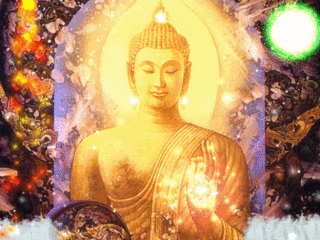
WE GO ON MOVING ON THE SAME PLANE. Sometimes we play the game of words, sometimes we start playing the game of silence. Sometimes we play the game of being worldly, sometimes we start playing the game of being other-worldly. Sometimes we play the game of the marketplace, and sometimes the game of the church and the temple -- but the plane remains the same. We don't move a single inch. Your monastery and your marketplace both belong to the same world.
You live on one plane. Unless this plane moves towards a higher altitude, you can do whatsoever you like but nothing will change. An angry person can pray, but his prayer will be out of anger; an angry person can love, but his love will be full of anger. An angry person can do many things, but wherever, whatsoever he is doing, anger will be present -- maybe sometimes obvious, sometimes not so obvious. A violent person can try to be non-violent. Then in his non-violence there will be violence, he will be very violently non-violent. He will be very aggressive about it; he will become obsessed with non-violence.
Remember, it is not a question of changing from one polarity to another polarity on the same plane. The question is of changing from one plane to another.
A few years ago the dons of the Philosophy faculty at Cambridge decided to make the final examination consist of only one compulsory question, which read as follows:
"Is this a question?"
To everyone's surprise one candidate got up, handed in a sheet of paper and walked out two minutes after the examination had begun.
When the results were announced he had come first. He had written: "If that is a question, THIS IS AN ANSWER."
Yes, that's the exact answer -- on the same plane. But neither is the question a question, nor is the answer an answer.
This is what we are doing. Be very watchful. It is very human to be caught in the polarity.
Yes, truth cannot be uttered in words, but it cannot be uttered through silence either. Then what is one supposed to do?
Zen has a very, very special approach about it. It uses words in a nonsense way -- it uses words without any meaning. It uses words not as they should be used. It uses words in an absurd way.
Somebody asks: "What is a Buddha?"
And Tosu says: "A Buddha."
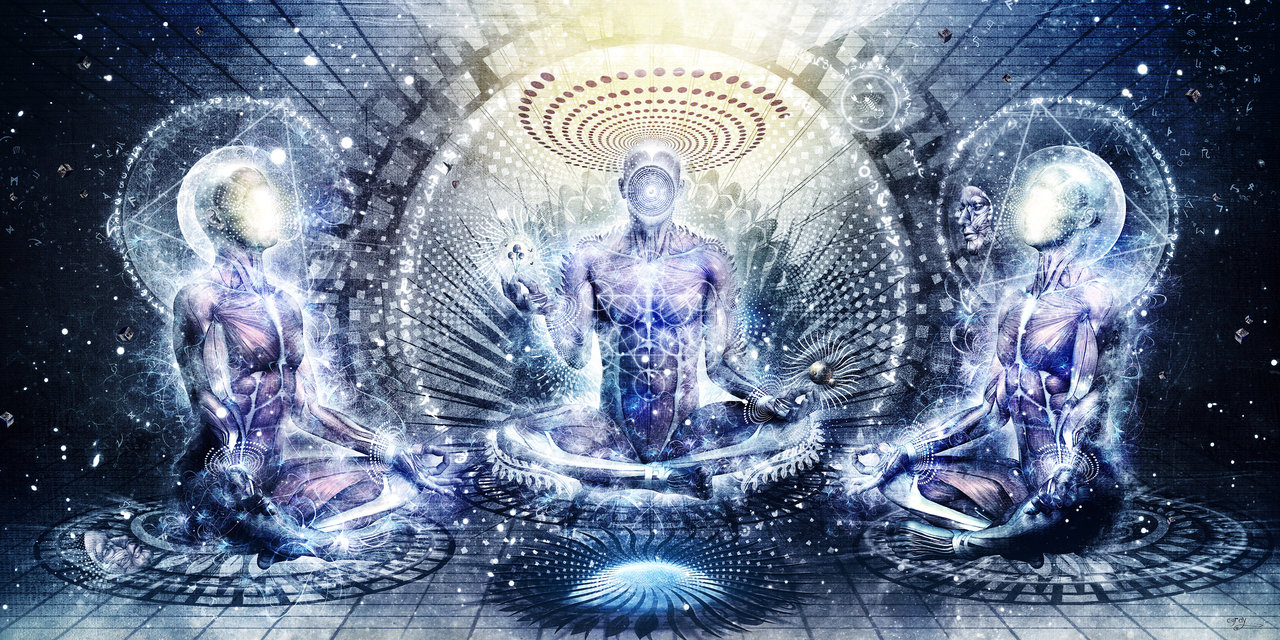
Now this is a tautology; you are not saying anything. The man is asking "What is a Buddha?" And you say, "A Buddha is a Buddha." You have not added anything, you have simply repeated.
Language is to add something, to define something, to propound something, to make something more clear, to help in some way. You have not helped! You have thrown the questioner towards himself.
He asks, "What is Buddha?" and you say, "Buddha." What are you doing? You have shocked the whole mind process. For a moment the questioner will be at a loss -- what to do? If you had said something meaningful... then thinking starts. Then he can think about it. A meaningful assertion leads to much thinking. He can think about what you have said. If you had kept silent... he can guess. Thinking starts again. He will guess, "What do you mean by your silence?" In fact, there is more possibility of guesswork when you are silent than when you say something. When you say something, at least you give him a direction. When you don't say anything, all directions are kept open. He can run around every place and think whatsoever he wants to think -- you give him freedom. Either way, you help him to think; either way, his mind starts weaving and spinning.
What does Tosu mean when he says, "Buddha"? He simply shocks you. It is a full point. He does not help you to think any more, in any way. He does not give you any opportunity to go into thinking. The very shock... for a moment everything stops. In that stop the vision is possible. And that stop is of great significance.
If you ask the philosophers they will say, "This is a tautology, this is not an answer." It is not. It is a tautology, but it can't be helped.
But the technique has to be understood. What is Tosu doing? Tosu is creating a great technique. And after Tosu, Zen Masters have used it tremendously; they even made much improvement on it.
Another Master is asked: "What is a Buddha?"
And he says, "Look! The cypress in the courtyard."
Now that is far better even. When you say, "A Buddha is a Buddha," there is a possibility that the man may go on thinking in the same way as he was thinking before. Or he may think you don't know; or he may think, "Yes, a Buddha is a Buddha." He may not be shocked.
But when a Master shouts: "Look! The cypress tree in the courtyard!" now it is completely irrelevant. He gives you a complete discontinuity with your mind. He shocks you out of your sleep, even for a moment, but to come out of your sleep even for a single moment is to attain a great vision. And in that vision something happens -- your plane is changed. You don't move on the same plane, you jump onto another plane. The altitude is different.
Zen Masters have improved more, by and by. Tosu is the founder of a subtle technique of shocking people; of not using language in the ordinary, usual way; of playing with language in such a way that the language does not give any impetus to thinking. And not using silence, because silence gives impetus to guessing. Using words, but in such a nonsense way that they don't carry any sense -- one thing.
Zen Masters go on improving later on. You ask a Zen Master, "What is a Buddha?" He can hit you! That is far better even than cypress tree in the courtyard'. He can jump upon you, he can take you unawares. You were not waiting for it. He can slap you.
What are these techniques? What is the significance of all these? They look so brute, violent, uncivilized, primitive. They are not. The whole effort is to give you a gap from the polarity -- not to allow you to escape to any polarity of your ordinary mind, to push you somewhere beyond it.
When Rinzai was asked what the essence of Buddhist teaching was, he came right down from his seat and, taking hold of the questioner by the front of his robe, slapped his face, and let him go. The questioner stood there, stupefied.
The bystanders remarked, "Why DON'T YOU BOW?" This woke him from his reverie; and when he was about to make a bow to the Master, he had his first satori.
What happened? A very strange exchange. The person has asked him a question: "What is the essence of Buddhist teaching?" and he gets slapped before a crowd -- must have been Rinzai's disciples. He was not waiting for it. It was so unexpected; that is the beauty of it. When something expected happens, your mind can continue in the routine way.
Now if this man goes again to Rinzai and asks the same question again and gets slapped, there will be nothing in it. He will be expecting it. A Master of the qualities of Rinzai or Tosu will not slap you again; he will find another way. He may bow down and touch your feet.
A Zen Master has to remain unexpected. Once you know his answers, they are no longer answers; once you know something beforehand, the mind starts weaving its patterns around it -- it already knows. The mind can only be shocked and taken out of its reverie by something absolutely unexpected. This is the technique: the unexpected. And the unexpected helps. The expected keeps you where you are; the unexpected jogs you out of your reverie.
But even the slapping has not helped. Rinzai slapped this man, he was stupefied; he must have become scared, he must have been very shocked. But he was still not out of it, he was still clinging to the same plane. He may have been getting angry, or he may have been thinking to hit back. And then somebody from the crowd -- must have been a man of great understanding -- somebody in the crowd said, "Why don't you bow?" Now this is even more unexpected. Somebody hits you, slaps you, and you have to bow to him!
But the one who said, "Why don't you bow?" is showing great insight. He is saying, "The Master has been so compassionate towards you. There was no reason for him to do so much -- to come down, to take you by your collar and hit you and slap you. There was no need! Out of compassion he has done so much for you, and what are you doing standing there like a fool? At least you can bow down, at least you should be thankful!"
This is even more unexpected -- that somebody hits you and you have to be thankful. But the man understood. He must have looked in that moment at Rinzai -- that compassionate man, those compassionful eyes, that love -- in that one moment he must have seen the Buddha standing before him, the very personification of enlightenment. He must have had a glimpse, a window must have opened, something must have clicked. Yes, he understood: "This man has not hit you out of anger, out of aggression. He is not your enemy, he is your friend. It is out of compassion that he has hit you." Once this glimpse dawned on him, he bowed down. In that very bowing, he had his first satori.
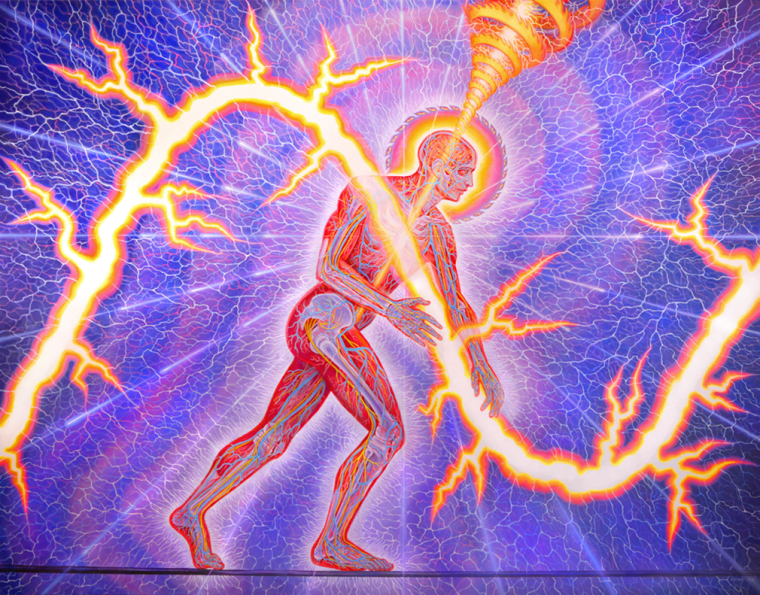
ZEN HAS BROUGHT INTO THE WORLD sudden techniques of enlightenment. And the base of all of them is: hold the other in an unexpected moment; do anything, but bring an unexpected moment, for which the man concerned has no answer in the past, no guess is possible, for which the past is absolutely meaningless. The past cannot supply any answer, the memory is impotent -- that is the meaning when I say 'the unexpected' -- when you cannot find in your memory something that can become the answer to 'why?'
Why is Tosu saying this? You have asked: "What is Buddha?" Such a significant question, one of the most significant questions. He has asked all the three significant questions that can be asked. First:
"WHAT IS THE BUDDHA?"
That is the goal, the very goal of life: to become enlightened, to come to a point of utter freedom, utter knowing, insight, consciousness, deathlessness. He has asked the goal:
"WHAT IS THE BUDDHA?"
Second, he has asked:
"WHAT IS THE TAO?"
Tao means the way. First, the goal; then the way to the goal. And then third, he asks:
"WHAT IS ZEN?"
Zen means the method. The method, the way, the goal -- that's all. These three questions are the ONLY relevant questions to be asked by an intelligent man. The whole of religion is nothing but an answer to these three questions: the goal, the way, the method.
The method brings you to the way, the way brings you to the goal. The method helps to keep you on the way, and the way leads you to the goal. This is the whole science of religion.
Religion can be defined in three categories: the methodology, the way, and the goal. The questioner has asked the most relevant questions that can be asked, and here come answers which are absolutely irrelevant.
"WHAT IS THE BUDDHA?"
And Tosu says: "THE BUDDHA!"
He's not answering your question, he is throwing you back to yourself. He's saying that to define one word by another word is to fall into an infinite regress. Try to understand this.
You cannot define one unknown by another unknown... or can you? The other is as much unknown.... For example, if he says, "Buddha is enlightenment," it doesn't solve anything. The person will ask, "What is enlightenment?" And he can define it by some other word, but nothing is solved. The person will ask, "What is that?" You can go on from A to XYZ, nothing is defined. Each word leads to another word which is as much undefined as the first one. This is an infinite regress.
That's where we are caught -- in the infinite regress. Because we cannot go to the very end of questioning, that's why we are not aware of it. Somebody asks, "What is love?" and you answer -- NOT knowing the fact that the terms that you are using in defining love are themselves indefinable. So what is the point? I ask you, "Where does A live?" You say, "Just by the side of B," and I am as puzzled as before, because I don't know where B lives. So I ask you, "Where does B live?" and you say, "Just by the side of C -- he is a neighbour of C." You are answering me, but I don't know where this C lives! So you go on, it is a vicious circle. You answer my question by another puzzle. It is not going to help. How can it help? I don't know A, I don't know B, I don't know C. Rather than helping me you are putting me into a mess.
In the beginning there was only one question: "Where does A live?" Now there are three thousand questions: "Where does B live? Where does C live...?" You are confusing me, you have not helped. And when Tosu says, "Buddha is Buddha." He is trying to not confuse you any more. You are confused already. He says, "A is A." What does he mean? What is his indicator?
He is saying, "Buddha can be known but cannot be explained." He is saying, "I cannot say anything about Buddha, but I can show you how to be a Buddha. A Buddha is a Buddha. When you have become a Buddha you will know. There is no other way to know. If you are not a Buddha, whatsoever you know will not be to the point -- will NEVER be to the point."
So the tautology is of tremendous significance. It may not have any meaning, but it has great significance. The significance has to be seen. Tosu says, "A Buddha is a Buddha." He does not help you to think any more about Buddha. He simply brings you to a full stop. He says, "Halt! Don't go into words because one word leads to another, and then there is no end to it." Words are like Indians -- they don't believe in birth control. One word goes on giving birth to another and another and another, it goes on. And soon you will be in such a mess, in such a crowd of words, that you will forget what your original question was.
Bertrand Russell has written in his autobiography: "When I was young and I went to the university to study philosophy, I had gone with the idea that I would get at least a few answers to the basic questions of life." At the age of ninety he remembers that he had been in the university, not only as a student but as a professor and as a great philosopher -- he was one of the most popular philosophers of this century -- and finally he says: "Only one thing can I say about philosophy and that is: it never answers a single question. It simply creates new questions instead of old -- far more complex, far more mysterious."
When a man comes to philosophy, he comes with very innocent questions. Philosophy does not answer. Philosophy simply makes him more cunning in answering questions. He becomes more articulate. He questions in a more logical way, that's all.
Philosophy has not solved a single question down the ages.
ENERGY ENHANCEMENT ENLIGHTENMENT IS THE CURE!!
.jpg)
That's what Tosu means when he says: "A Buddha is a Buddha. Don't go into philosophy!" -- that is what he is saying. "If I answer you that Buddha is this or that, the journey starts -- the journey to no end. You will become a great philosopher. So you better stop at the first step!
Don't go into it! One leads into another, and then there is no way to stop. And then to come back home is a long journey again. It is better not to go on this journey. Stop herenow!"
That's what Tosu means when he says, "A Buddha is a Buddha, Tao is Tao, Zen is Zen." He's saying, "STOP verbalizing! Drop this game of language!" But he is not silent.
He could have been silent and simply indicated: "Drop this game of language; keep silent." That would not have been to the point either -- because you can keep silent and the mind goes on inside, chattering. In fact, when you are sitting silent it chatters more than ever, because when you are talking to people you throw the energy out, you go on catharting. But when you are not talking to anybody, the mind goes on accumulating energy, and goes on moving inside more madly.
Just by sitting silently, nothing is going to happen. Trees are silent, rocks are silent -- they don't know what truth is. A different kind of silence is needed -- a silence that arises out of the understanding of the futility of the word AND the negative part of the word -- the silence. When language and silence both are dropped, there arises a totally new kind of silence: a tranquillity, a peace -- but alive, vibrant, pulsating with life.
A silence which has a dance in it, a silence which is more like a song than like the silence of the cemetery.
A silence which has a melody, a silence which has a celestial music in it. A silence which speaks -- not in words, but speaks all the same. A silence which is creative, which is not just the absence of noise. Try to understand it.
You can go to the doctor. He can check you, he can check you all over -- a thorough checkup, and he can say you are not ill; but that doesn't mean that you have well-being. You may not be ill, but to have well-being is a totally different thing. Not to be ill is negative; it simply says you don't have TB, you don't have cancer, you don't have this and that, your blood pressure is okay, your heart is functioning well -- everything is okay. You don't have any disease. But NOT to have any disease is NOT to have health! Health is a totally different thing. Health is a positive phenomenon, the PRESENCE of something. Health is as positive as disease.
Disease is the presence of TB or cancer. Health too is a presence -- of a new experience of well-being. You are so full of joy that you are ready to burst, that you are ready to bloom. Health is not just the absence of disease; it is something positive in its own right.
So is the real silence -- it is not just the absence of noise. That's why Tosu could not be silent; he had to say something. But he had to say it in such a way that the saying became a showing.
Let me repeat it: Truth cannot be said, but can be shown. These words used by Tosu are meaningless; these words used by Tosu are NOT used as words but as shouts! just to hit the other's mind to a halt. They show something. He is saying, "Don't ask questions. Let religion be your quest, not a question. Let religion be your experience, not an explanation. If you really want to know what Buddha is, I AM HERE! Look! Buddha is Buddha. I am here. Look into me, and look into yourself -- you are also a Buddha."
IN INDIA THERE HAVE BEEN THREE TRADITIONS. One is the Hindu tradition, the most ancient tradition. The Hindu tradition says God descends -- that is the meaning of the word AVATAR -- God comes from above. Just as God descended on Jesus when he was baptized by John the Baptist in the River Jordan; Gd descended like a white dove, entered Jesus. He comes from above -- that is the meaning of AVATAR -- coming from above. This is one tradition, the most ancient tradition.
The second tradition, which is almost as ancient -- or, maybe, a few think even more ancient -- that is Jainism. That has a totally different outlook. Jainism says God does not descend from above, God rises from below; it is a growth. In Jainism there is no concept of AVATAR. It is not that it comes from the sky, it grows out of the earth like a tree -- TEERTHANKAR. Man becomes God by growing, evolving; going higher and higher and higher. One day man becomes God when he has reached to the ultimate.
In Hinduism, one day God becomes man, when He has reached to the lowest.
Buddhism is the third tradition, and to me, far superior to the other two. It has a third approach. It says everybody is a Buddha; God neither comes down nor goes up. Everybody is already a Buddha, only recognition is needed. Buddha is already there! YOU ARE BUDDHAS! YOU may have forgotten, that's okay, but that does not make you non-Buddhas. You are Gods! You may have forgotten YOURself who you are, that's true, but by forgetting you don't become somebody else -- you remain the same.
So in Buddhism the significant word is: BUDDHANUSMRITI -- remembrance of one's own Buddhahood. One has not to go up, there is no up to go to. And Buddhism is very scientific. There is really no up to go to -- up and down are all relative terms -- there is no up and no down. And there is no down from where to grow upwards. We are already there! We exist at the goal; we have already arrived. We just go on thinking that we have not yet arrived and we have to reach somewhere. So just a recognition....
Hence the Zen insistence to awaken you by shocks. A Buddha is thinking that he is not a Buddha -- what to do? Rather than explaining to him, giving him great philosophy and theology, it is better to hit him hard so he awakens! In that moment of awakening is satori.
People feel very puzzled as to how satori is attained so fast. It is attained so fast because you are already in it. It is not something to be achieved in time, with effort; no effort is needed. It is as if a man has fallen asleep and he has forgotten his name -- as you all forget in your sleep. Then somebody comes and shouts, "Ram! What are you doing here? Get up -- the sun has risen!" He opens his eyes, and he is Ram again. And just a moment before, he was under a thousand and one dreams -- floating, moving, going in a thousand directions, dreaming impossible things. And suddenly a shout, "Ram! Get up -- the sun has risen!" and Ram opens his eyes.
Exactly like that is satori.
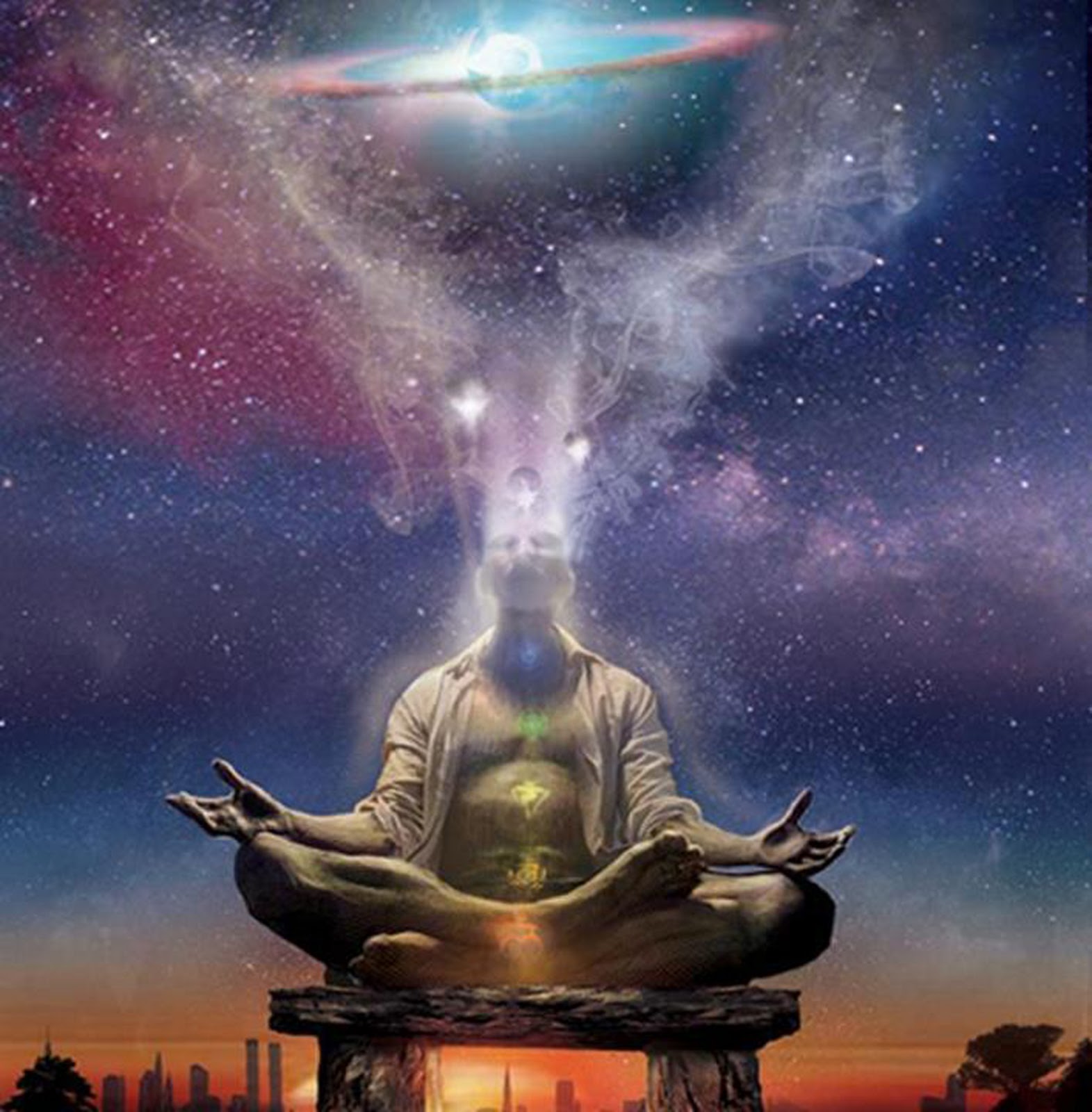
In olden times the T'ang Emperor, Koso, asked of a sage
who was practising the Way in the mountains:
"You are always living in the depths of the mountains.
What happiness is there in such places?"
To which the man of the mountains replied in a verse
"What is there in the mountains?
In the mountains the white clouds are many.
But this is something you have to enjoy by coming yourself.
I cannot bring them here and present them to you."
There are a few things which cannot be given to you by anybody else. You have to go there. I can talk to you about the white clouds in the Himalayas, the virgin peaks of the Himalayas, the crystal clear lake of the Himalayas, but those will be just words. They may stir a few dreams in you, but that is not of any significance. You have to go to those peaks, you have to be under those white clouds.
I have heard about a poet, a great poet, who went to the sea beach. His beloved was ill in the hospital and he had not slept the whole night; he had been sitting by her side. By the morning she had fallen asleep, and he had gone to the beach just to have a little fresh air.
It was a beautiful morning. It was tremendously beautiful -- the sun was rising, and the smell of the beach, and the freshness of the morning, and the roaring waves. And he became so thrilled that he thought he would take some beauty of this morning to his beloved who was dying in the hospital. "She will also be happy. Let this be a gift. She is to depart soon."
He did something foolish, which only poets can do. He ran home, brought a beautiful box, opened the box on the sea beach, closed it, locked it. Yes, sunrays were dancing in the box, and the breeze was passing through the box, and the smell too, and the birds' songs were also there in the air. He closed all of them in a box and he rushed to the hospital. He was thrilled with the very idea that he had brought a chunk of the morning.
He awakens his beloved, puts the box by her side, opens it, and there is nothing -- no sunrays, no fragrance of a morning beach, no songs of the birds, no fresh air. The box is empty....
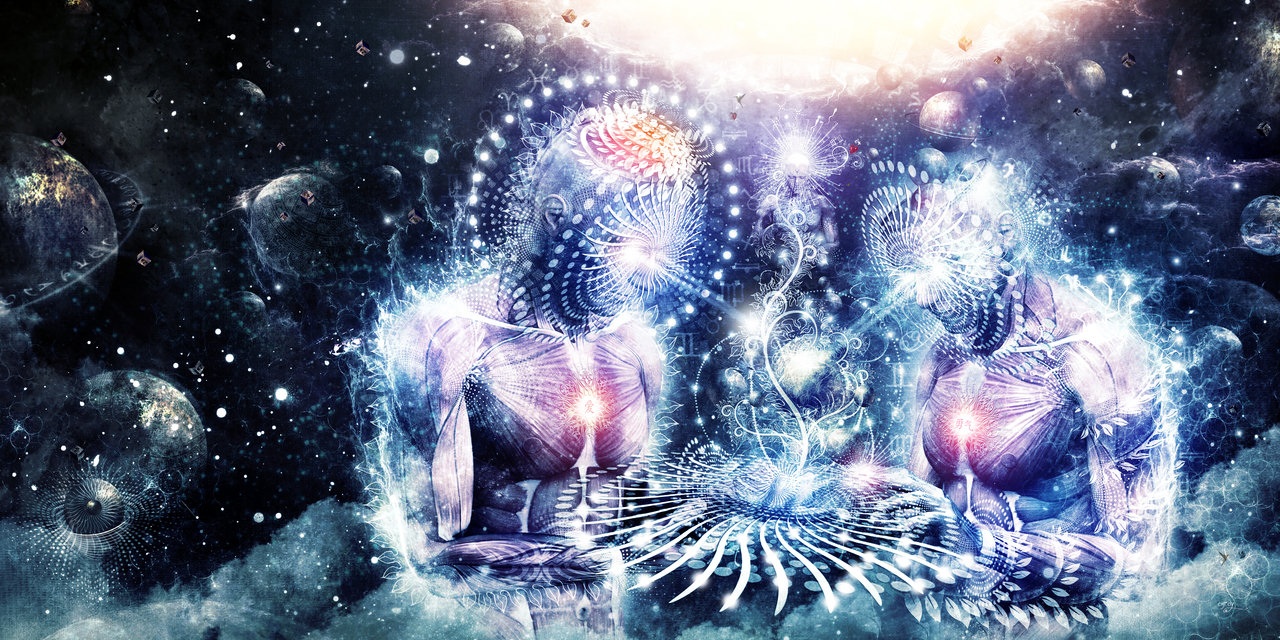
SO ARE ALL WORDS... empty. The word 'God' is as empty as that box. The word 'Buddha' is as empty as that box. That's what Tosu is saying when he says, "Buddha is a Buddha." A sea beach is a sea beach -- you have to go there. A mountain is a mountain, you have to go there. You cannot buy these things in the market. Nobody else can deliver them to you. At the most, Masters can create a thirst; at the most, Masters can create dreams in your eyes so that you start the journey. But nobody can give It to you.
A very ancient Buddhist parable -- this is from the Lotus Sutra:
A nobleman's son wanders away as a child and becomes a homeless vagrant. In time he forgets that he ever had a home, but one day without thinking he comes to the gate of his lord's house. He has not the faintest notion that he was born there, but stands at the gate imploring pity for his wretchedness. The noble sees him from within and recognizes his long-lost son even after all those years, but when he calls him to come in, the miserable beggar is frightened and will not.
The beggar even tried ro escape. And the noble -- his father was very much afraid he may be lost again. "How to persuade him to come in? How to persuade him that this is your house, you need not be afraid -- that I am your father?" He must have been very wise.
He sends a servant to persuade the beggar, saying, "We need a servant in the house. Would you like to have the job?"
The beggar is ready for that. Some small work is given, he is taken back as the humblest servant in the household, and then little by little promoted, until finally he again resumes his name. when the house and its wealth and treasure all become his.
That's the whole function of a Master -- to create a thirst, a great desire, a longing to know the truth, and then to help you, by and by, to understand that the truth is not somewhere far away from you, it resides in you. But you will not be ready to hear it so directly. You will be as frightened as the beggar. If the master of the house had told him immediately, "You are my son," he would have escaped. He would have thought, "There is some trap in it." How can he be the son of this rich man? He is a beggar.
The master was really, very very wise. Slowly, slowly he persuades. On the way to becoming a Buddha you have to be persuaded very, very slowly. The Master initiates you, you become a sannyasin, a BHIKKHU, this and that; then, by and by, you start having mini-satoris, then bigger satoris, then samadhis. You go on being promoted. one day, suddenly, you know that all this has been just a trick. What you have become finally, you have always been. But the Master has to be very persuasive, seductive.
The Master is not giving you anything. There is nothing to give. He is simply giving you something that you already have. Rather than saying that the Master gives you something, in fact, he takes many things away from you. He takes those things which you don't have and you think that you have, and he gives you those things which you have but you think that you don't have.
The whole function of the Master is just to bring you home -- which you had never left in the first place.
THERE IS A FAMOUS ZEN SAYING you must have I heard. It is said that before we study Zen, the mountains are mountains and the rivers are rivers. While we are studying Zen, however, the mountains are no longer mountains and the rivers are no longer rivers. But then, when our study of Zen is completed, the mountains are once again mountains, and the rivers are once again rivers.
When a Zen Master explained this to one of his students, the student exclaimed, "Well, if that is true, then there is no difference between the ordinary man and the enlightened man. Because before you go into Zen, mountains are mountains and rivers are rivers. Then you study Zen and mountains are no more mountains, and rivers are no more rivers. And then when the study is complete and you have come home, rivers are again rivers and mountains are again mountains."
The question is relevant.
The disciple asks, "Sir, if this is so, then there is no difference between the ordinary man and the enlightened man."
And the Master says, "There is none."
There is no difference, except one -- that the enlightened man knows that there is no difference, and the unenlightened man thinks there is.
Somebody asked Buddha, "What is enlightenment?"
And Buddha said, "It exists only in the minds of the unenlightened."
A tremendous saying! You rarely come across such a Kohinoor-like saying: "It exists only in the minds of the unenlightened." They create it. They first think they are unenlightened, hence they create an ideal of enlightenment.
The enlightened person simply has come home, and he knows the mountains are mountains and rivers are rivers, and they have always been mountains and they have always been rivers. Not for a single moment has anything ever changed; everything has been as it should be; everything is perfect. There cannot be any more perfection in existence than as it is. The existence is utterly perfect! You are perfect, as you are. There is nothing to be added, there is nothing to be improved upon. But to say this to somebody does not make much sense.
Slowly, slowly the Master has to persuade...
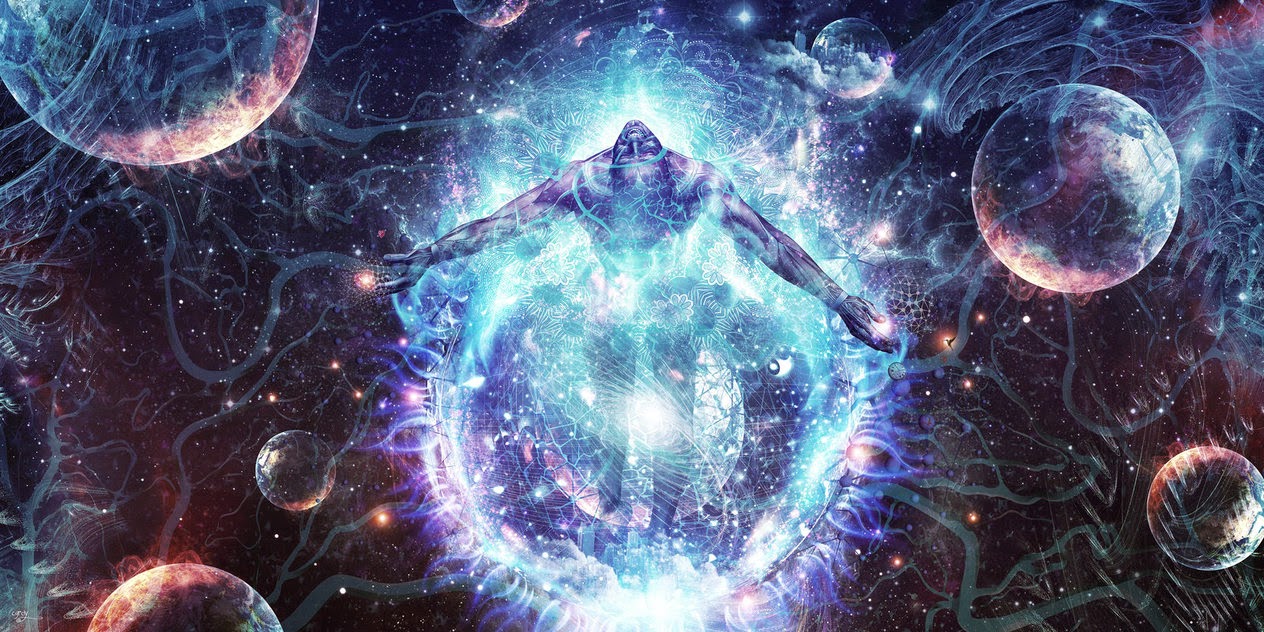
A MONK ASKS, "WHAT IS THE BUDDHA?" and
TOSU (THE MASTER) ANSWERS, "THE BUDDHA."
Like a hammer! He is saying, "Don't ask nonsense questions. You are That -- TAT-TVAM-ASI: Thou art That." But he is not even saying that, because once you use "Thou art That -- TAT-TVAM-ASI," philosophy starts. Then he starts thinking "Who am I?" and "Who is That?" and "How am I That?" and questions.... And there is no end to it. Tosu simply stops the whole thing then and there.
In Zen they say the Master is like a sword. He cuts. He strikes so deeply that in a single stroke he cuts you into two pieces.
The Monk asks: "WHAT IS THE TAO?"
And Tosu says: "The TAO."
And the monk asks: "WHAT IS 2EN?"
And Tosu says: "ZEN."
Either the monk will have a little satori through Tosu, or he will be completely frustrated that "This man is mad!" What is Tosu doing? Tosu is simply echoing! What else can be done? You go to the mountains and you sing a song, and the mountains echo it.
In Matheran there is a place, Echo Point. Once I went there with a few friends. You shout and the mountains shout back. Somebody started barking like a dog and the mountains started barking. I told the man, "If you are to do something, why not sing a beautiful song? Why are you barking? Why give so much trouble to the mountains?" He started singing a song, and the mountains started singing a song.
Life is an echo point. A Master echoes you, a Master is a mirror. The Master simply shows you who you are, that's all. He simply gives you your face. He simply reflects, echoes.
The disciple asks: "WHAT IS THE BUDDHA?"
And the Master says: "THE BUDDHA."
You go to a mountain and you inquire, "What is the Buddha?" and you will hear "... the Buddha." You will not hear the whole question repeated. Reason? Those first two words will be lost, overlapped. When you say, "What is the Buddha?" the mountain repeats the whole thing, "What is the Buddha?" but there will be a gap -- a time gap, a slight time gap. Because of that time gap, when you are able to hear -- when you have completed your question and you are able to hear -- you will not hear the whole question repeated: "What is the Buddha?" You will hear "The Buddha."
It is very significant. A Master reflects, mirrors. A Master simply gives you back again and again. A master does not improve upon you. He does not give you a should, because all shoulds create guilt. A Master does not give you any ideal, because all ideals create tension, anguish. A Master never says, "This is bad and that is good." He never creates values, because all values create splits. A Master never teaches judgement, he teaches you to live without judging, without condemning, without saying good or bad. Let life flow as it is.
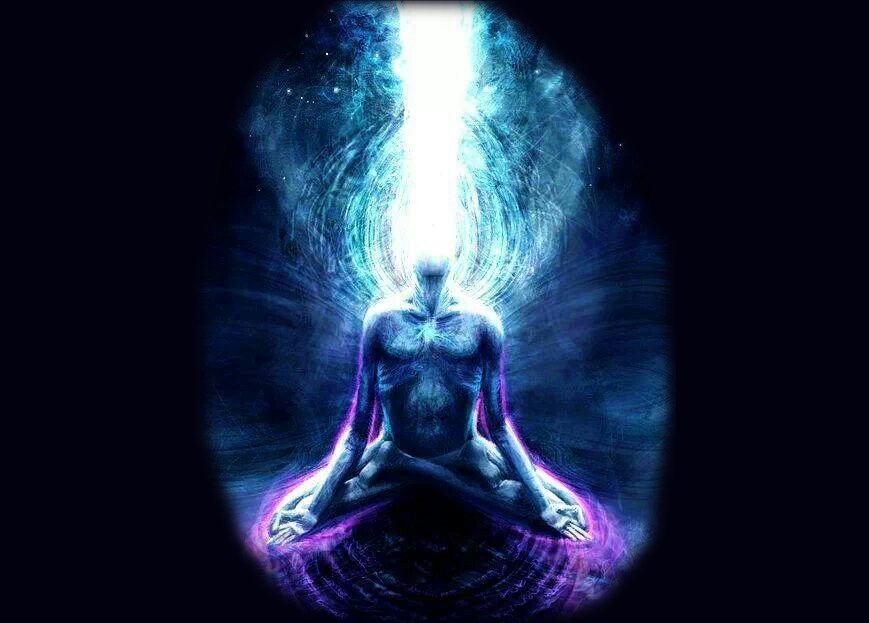
Listen to this beautiful parable and you will understand the mirrorlike quality of a Master. This is one of the most famous Zen stories about the great Zen Master Hakuin when he was at Shoinji temple.
A girl among the congregation became pregnant. Her severe father bullied her for the name of the lover, and in the end, thinking that if she said so she might escape punishment, she told him: "It is that Zen Master Hakuin."
The father said no more, but when the time came and the child was born he at once took it to him and threw the baby down. "It seems that this is your child." And he piled on every insult and sneer at the disgrace of the affair.
The Zen Master only said: "OH, IS THAT SO?" and took the baby up into his arms. Thereafter, during rainy days and stormy nights he would go out to beg milk from the neighbouring houses. Wherever he went he took the baby, wrapped in the sleeve of his ragged robe.
Now he, who had been regarded as a living Buddha, worshipped as a Shakyamuni, had fallen indeed. Many of the disciples who had flocked to him turned against him and left him. The Master still said not a word.
Meantime the mother found she could not bear the agony of separation from her child and, further, began to be afraid of the consequences in the next life of what she had done. She confessed the name of the real father of the child. Her own father, rigid in his conception of virtue, became almost mad with fear. He rushed to Hakuin and prostrated himself, begging over and over again for forgiveness.
The Zen Master this time too said only: "OH, IS THAT SO?" and gave him the child back.
Both times the same thing: "OH, IS THAT SO?" The first time the father throws the child on Hakuin and says, "This is your child," Hakuin does not say yes or no, he does not protest. He simply accepts. He says, "Oh, is that so?" And after months... and you can understand his difficulties: the small child, and the town has turned against him. Begging for himself has become difficult, and to beg for the child is even more difficult, and he has to take care of the child. But not for a single moment does he utter anything against it. This is acceptance -- tathata -- this is suchness. Whatsoever life brings is okay, absolutely okay.
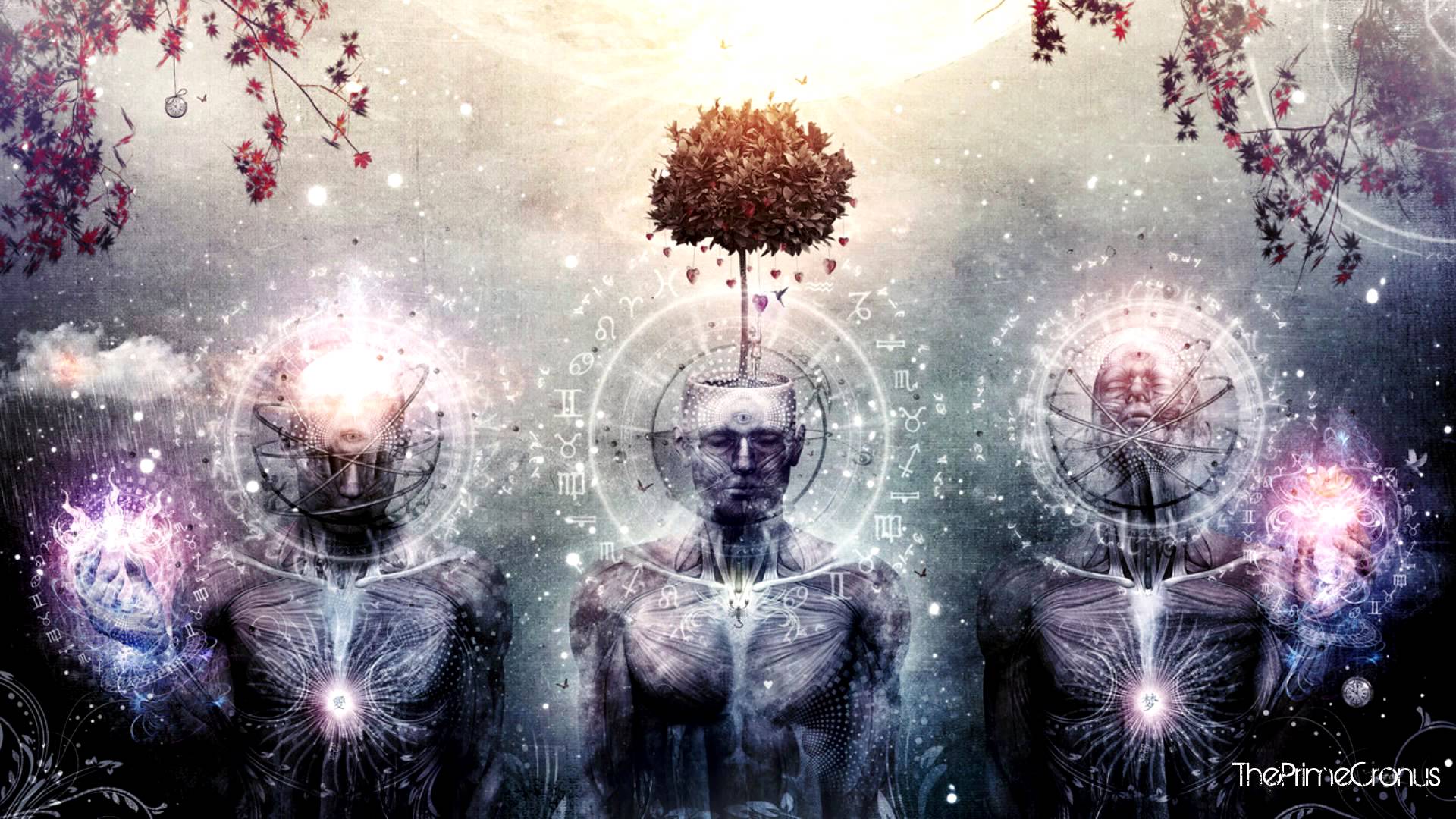
And when the father comes back and snatches the child, and says, "Excuse me", and asks forgiveness: "It was wrong and you are not the father of the child -- there is somebody else who is the father of the child, forgive me," Hakuin says, "Oh, is that so?" and gives the child back. Not a single comment.
This is the mirror-like quality. Nothing is good, nothing is bad -- all is divine. This is Buddha's message. A Master reflects in his each act.
That's why sometimes you will find a Master very contradictory. You will find me contradictory many times. I say one thing to one person, and I say exactly the opposite to another. And sometimes both have brought the same problem! The problem may look the same as far as it is formulated in the same language, but it can't be the same, because the questioners are different. They have different pasts, different orientations, different miseries, different pains, different anxieties, different parents, different societies, different conditionings. The question may look, on the surface, exactly the same, but it can't be the same. No two persons can ask the same question, so for no two persons will the same answer be the right answer. It will depend.
When you stand before a mirror it reflects your face. When you go away, the face disappears. Somebody else comes, the mirror reflects that face. Once it moves, that face is gone; the mirror is empty again. You don't say to the mirror, "You are very very inconsistent. Sometimes you show one face, sometimes you show another face." Photographs are more consistent! That's true. A photograph is very very consistent, it remains the same. But a photograph is dead. It has a very limited capacity. Once exposed, it is finished. The mirror is infinite. You can go on exposing it to millions of people, and it remains there, a perfect mirror, and goes on reflecting.
A real Master is bound to be inconsistent; only teachers are consistent. Only very mediocre minds are consistent. When the mind becomes cosmic, it is as inconsistent as God itself, it is as paradoxical as God itself. Hence, I call Zen the Path of Paradox.
A monk asked Joshu, "What is the Buddha?"
"The one in the Hall."
The monk said, "The one in the Hall is a statue, a lump of mud!"
Joshu said. "That is so."
"Then what is the Buddha?" the monk asked again.
"The one in the Hall."
Now this is strange. He agrees with him that that is just a statue, a lump of mud; he says, "That's right." And when the man asks again, "Then what is Buddha?" he says, "The one in the Hall."
What does Joshu mean by this? He means that until you drop asking "What is the Buddha?" you are searching for a statue. As long as you go on asking "What is the Buddha?" you are asking something objective. That's why he says, "That in the temple, that is Buddha." If you go on asking "What is the Buddha?" you want an objective answer -- and Buddha is your subjectivity.
So he agrees with the man, "Yes, you are right. The thing inside the temple is not a real Buddha. It is a mud statue." Naturally the man must have felt hopeful -- "Now some other answer will be coming." He asked, "Then tell me what is Buddha?" Now he was not expecting that he would say the same again. And he had agreed that that is just a statue, a mud statue. Again he says, "The one in the temple." Why? Because if you go on asking for the objective, you are asking for something dead.
The reality is subjective. God is subjective. It is your innermost core, it is your interiority. You cannot ask a question like that. You have to go inwards to know "What IS a Buddha?" And when you start moving inwards you are moving on Tao. And when you start moving on Tao, you start using DHYAN, meditation, Zen. Zen is the method to go in; Tao is the way that leads you to the innermost core; and the innermost core is Buddha. You are a Buddha.
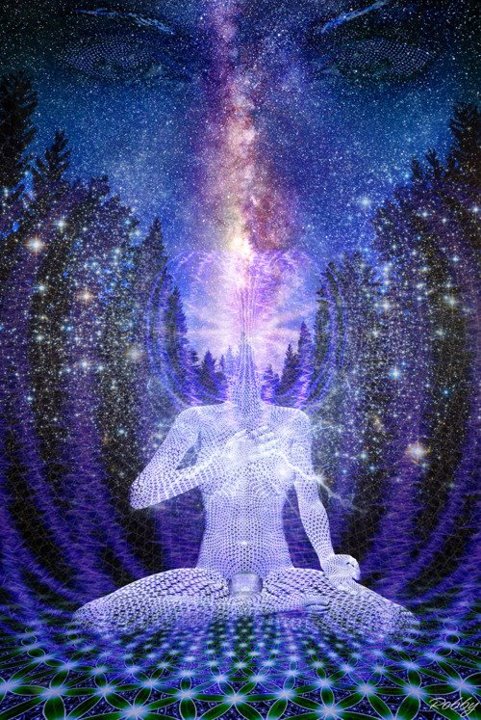
SO THE FIRST THING is to accept life as it is. Accepting it, desires disappear; accepting it as it is, tensions disappear, discontent disappears; accepting it as it is, one starts feeling very joyful and for NO reason at all. When joy has a reason, it is not going to last long. When joy is without any reason, it is going to be there forever.
There are two ways a man can be. A man can either move towards having more things -- then he goes against Buddha, against Tao, against Zen. The man who is too much concerned with having more is the worldly man. And the man who says whatsoever is, is good; who relaxes; who is not worried about having more money, more power, more prestige, more respectability; who relaxes into TATHATA, suchness, isness -- he becomes a religious person. He starts moving in.
If you are thinking to have more, you will move out. When you are concerned with having, you will be moving out; when you are no more concerned with having, you will move in towards being. And being is Buddha.
It happened about a very famous Zen woman, her name was Rengetsu.... Very few women have attained to the Zen ultimate. This one is one of those rare women.
She was on a pilgrimage, and she came to a village at sunset and begged for lodging for the night, but the villagers slammed their doors. They were against Zen. Zen is so revolutionary, so utterly rebellious, that it is very difficult to accept it. By accepting it you are going to be transformed; by accepting it you will be passing through a fire, you will never be the same again.
So traditional people have always been against ALL that it true in religion. Tradition is all that is untrue in religion. So those must have been traditional Buddhists in the town, and they didn't allow this woman to stay in the town; they threw her out. It was a cold night, and the old woman with no lodging... and hungry. She had to make a cherry tree in the fields her shelter. It was really cold, and she could not sleep well. And it was dangerous too -- wild animals and all.
At midnight she awoke -- because of too much cold -- and saw, as it were, in the spring night sky, the fully opened cherry blossoms laughing to the misty moon. Overcome with the beauty, she got up and made a reverence in the direction of the village....
This is what TATHATA IS.
Overcome with the beauty, she got up and made a reverence in the direction of the village:
Through their kindness in refusing me lodging I found myself beneath the blossoms on the night of this misty moon.
She feels grateful. With great gratitude she thanks those people who refused her lodging, otherwise she would be sleeping under an ordinary roof, and she would have missed this blessing -- these cherry blossoms, and this whispering with the misty moon, and this silence of the night, this utter silence of the night. She is not angry, she accepts it. Not only accepts it, welcomes it -- she feels grateful.
A man becomes a Buddha the moment he accepts all that life brings with gratitude. He is on the Way, he is on Tao; and he IS becoming meditative.
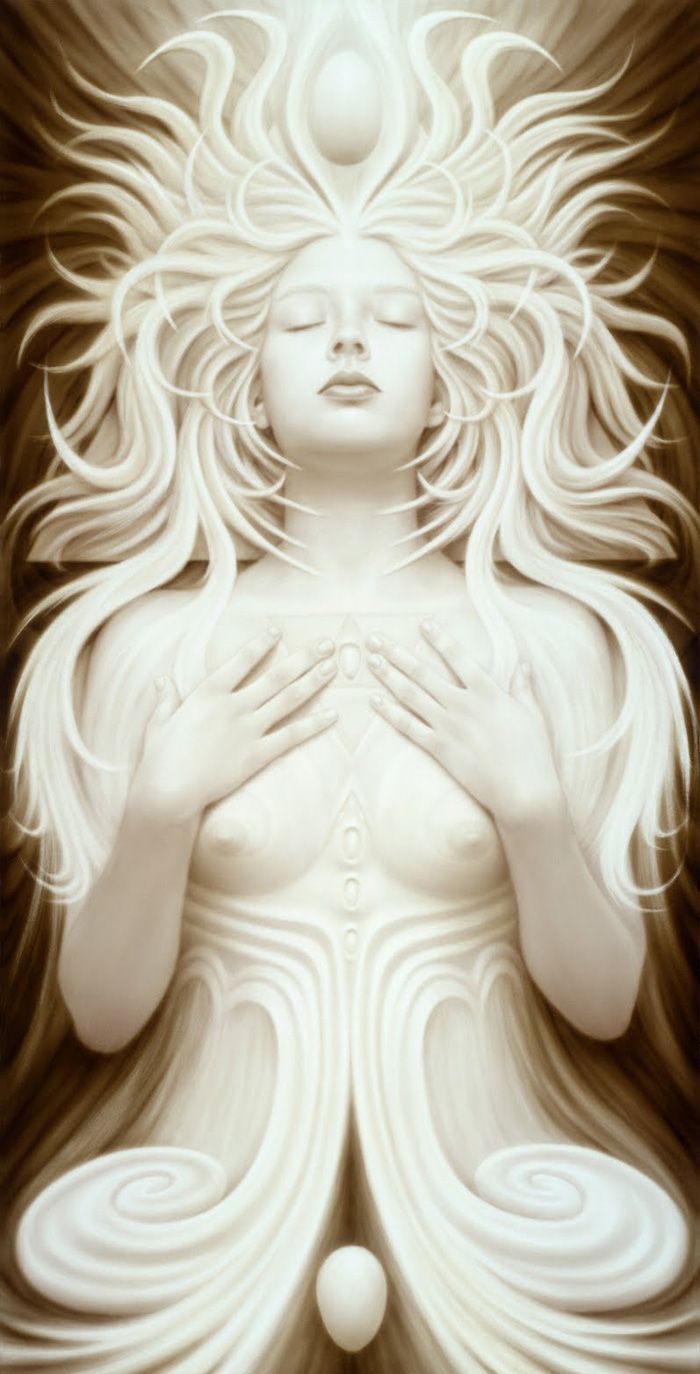
Mind is the technique to go out. That's why you are trained in your universities and colleges and schools for mind. Mind is the technique to go out, to have many more things -- to have bigger houses, to have much property, to have political power, to have money. Mind is the way to go out and conquer the world.
Meditation is just the reverse process. It is nothing but no-mind. That is what Zen is. You go in, you stop thinking, because what is the point? There is no need to think. To conquer the inner, thinking is not needed. To conquer the outer, thinking is needed. Thinking is instrumental for the outer.
So Zen, or DHYAN, or meditation, is nothing but a non-thinking consciousness. There is no need! If there is no desire, who bothers to think? for what to think? You watch. Whenever you are too full of desire you think too much. When there is not much desire, thinking disappears of its own accord. People ask me how NOT to think? That is not the point. How NOT TO DESIRE is the point.
Desire creates thoughts, desire brings ideas, dreams, and then you have to manage, and you have to plan, and you have to work them out, and you have to move methodically -- then thinking comes.
Just create a desire. A car passes by, and let there be a desire in you that "I would like to have this car." And then you will see many thoughts coming: "How to possess it? How to arrange for the money? What to do? -- to do business? or to steal, or what? Or go the American way: just take it on installments?" One then needs thoughts, because without thinking you will never have this car.
Watch, whenever desire arises, it brings in its wake many thoughts. When there is no desire, suddenly, what is the point of thinking? There is no need. The wavering disappears, the stirred mind is no more stirred.
Then, mind has another kind of function; then it becomes simply receptive. A bird starts singing -- you hear, but you don't even say that this is beautiful. There is no point in saying it. It is beautiful! What is the point of saying it? Then an aeroplane passes by and the noise, and you know it, and you hear it -- and you hear it more than anybody else, because other people are so much engrossed in their thoughts. The plane passes by, they can't hear. Their ears are plugged with their thoughts; their minds are plugged with their thoughts. The wool of thoughts is too much, it makes them insensitive.
But when a man has no thoughts, he is utterly sensitive. He sees the beauty, he looks around, he hears more, he smells more, he touches more, he loves more. Everything is more! Look at the paradox: when you want more, everything is always less, always less than you want. When you don't want anything, everything is too MUCH! Unbearably too much! A SMALL thing becomes so much. And you enjoy such ordinary things -- chopping wood carrying water from the well, holding the hand of a friend, or just seeing the cherry tree bloom, whisperings from the misty moon.
Life is immense, and each moment it comes with a thousand and one gifts for you. But you are so much engaged preoccupied with your desiring mind. You are so full of your thoughts you refuse all those gifts. God comes: you go on refusing.
To enter in means to understand the ways of desire. When you have understood that the desire creates turmoil, you stop desiring. When the desire is not there, thinking disappears. This is Zen.
When you are in Zen you have started moving on the path -- the Way, Tao. And when you are on the path, Buddhahood is not far away. It can happen sometimes in a single instant, because it depends on your intensity. It is not a question of it being ten miles, or twenty miles, or twenty thousand miles. It depends on your intensity.
People of intense understanding can reach to Buddhahood in a single step. Just the winking of the eye. It depends how TOTAL your intensity is, how thirsty you are, how ready you are to stake all. If you can stake all, then in a single moment... the gestalt changes. You are no more the ordinary man, you are a Buddha.
But if the intensity is not total -- partial, only lukewarm -- then you can take ages. Thousands of lives you can go on and on and on and the Buddhahood remains far away. So remember it: it depends on intensity how long the way will be.
Zen is meditation, Tao is the Way, and Buddhahood is your ultimate nature. If you can move totally in meditation, then this very moment -- the transformation...

Listen to this small exchange again. Now you will be able to go into it more deeply.
A MONK ASKS, "WHAT IS THE BUDDHA?"
TOSU (THE MASTER) ANSWERS, "THE BUDDHA."
MONK: "WHAT IS TAO?"
TOSU: "THE TAO."
MONK: "WHAT IS ZEN?"
TOSU: "ZEN."
The Master simply reflects, mirrors, throws the disciple back to himself again and again. If the disciple had really been a seeker, not just curious, he would have attained.
It is enough to look into the eyes of a Master. It is enough to hear the echo that comes from his heart. It is enough to be in contact with that fire that Buddhahood brings to a man. It is enough to come close to one who has attained. He is like a flame. When you come close, there comes a moment of closeness... the flame jumps into you and becomes your flame. The Master does not lose anything, and you gain all.
It is just like when you bring a candle, an unlit candle, to a lit candle. Watch what happens. Exactly that happens when a disciple comes to a Master. Just closeness, intimacy. The whole art of discipleship is of being intimate, coming closer, dropping your defenses, armours, dropping your will and your ego, and coming closer and closer and closer. And suddenly... one moment you were unlit, another moment you are lit. And it is so sudden, it is not a gradual thing. It is not that first you are lit a little bit, then a little more lit, no. It is so sudden. Suddenly, like a quantum leap, you are no more the old man... the new has arrived, absolutely discontinuous with the old. In fact, nothing more is needed.
If you can find a Master whom you can love, if you can find a Master with whom you can feel intimate, with whom you can be defenseless, with whom you can be vulnerable, from whom you don't have any secret, you don't want to have any secret, with whom you are ready to die, with whom you are ready to go anywhere he is going -- you don't care, wherever he is going is your goal -- if that trust is there, that is enough. Things will start happening on their own, because you are already Buddhas; just a recognition is needed. If you come close to a Master and his heart reflects you, you will see that your face is Buddha's face, that your state of no-mind is Zen, and that when you are moving inwards you are in Tao.
And there is no other way to explain what Buddha is, what Tao is, what Zen is.
Yes, it cannot be said through words -- words are inadequate; it cannot be said through silence -- silence is very negative. Zen chooses the middle way. It uses words in such a way that they create silence. It is a great device. Great art is needed to use words in such a way that they create silence, that the ultimate impact brings silence, not more words.
That's what I go on doing every morning with you. I go on throwing a thousand and one words at you. But the effort is not to give you words, the effort is just the contrary. The effort is to shatter the words which are already there in your mind. I throw words to shatter your words. Once they have negated each other, they both will fall down -- and there will be a silence, a totally new kind of silence you have never known. It is not the gap between two words, no. It is the presence of God, it is Buddhahood.
Next: Chapter 6: Grace is Being Herenow, Question 1
Energy Enhancement Enlightened Texts Zen Paradox, Vol. 3
THE SOLUTION? - THE ENERGY ENHANCEMENT COURSE BY STREAMING VIDEO OR LIVE IN BRAZIL, INDIA, WORLDWIDE!!
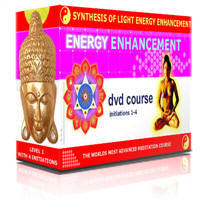
GET IT NOW!!
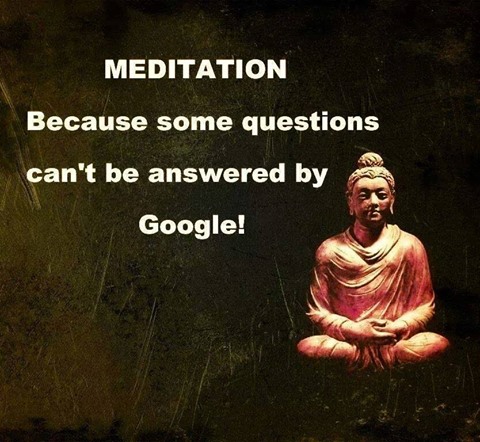
Energy Enhancement Meditation is Meditation as it was originally meant to be..
"Traditional meditations are designed to fail!!"
The Ancient Enemy who counts meditation and the mind control psychic arts as one of its main planks of World Domination has used Infil-Traitors for 10,000 years in every Organisation - Religion, Dynastic Families, Politics, Geopolitics, Economics, Universities, Intelligence Services, Think Tanks, Banking, International Companies, Eugenics - Worldwide, censoring Alchemical VITRIOL, the Kundalini Key and Energy Blockage Removal from every Meditation Program..
WE HAVE MANY ARTICLES SHOWING THE ORIGINAL EXISTENCE OF THESE ESSENTIAL MEDITATION TECHNIQUES IN EVERY WORLD RELIGION..
ENERGY ENHANCEMENT IS THE ULTIMATE
TECHNIQUE OF EVOLUTION!!
Just by meditation and energy blockage
removal, you can find the truth for yourself, increase your energy, access
incredible quantities of Kundalini Energy, become Enlightened.
And that's the only way, I think, you can actually make a practical, actually
practical indication of how we might be able to save humanity from its
degenerate Satanic predators.
GET YOUR ENERGY ENHANCEMENT VIDEO OR LIVE COURSE NOW!!

NOW, SPEED UP YOUR ENLIGHTENMENT PROCESS WITH ENERGY ENHANCEMENT ALCHEMICAL VITRIOL, KUNDALINI KEY AND ENERGY BLOCKAGE REMOVAL ON THE PATH OF ENLIGHTENMENT
GET IT NOW!!
SIGN UP TO THE MAILING LIST
EMAIL sol@energyenhancement.org FOR DETAILS..
VIDEO COURSES BY STREAMING VIDEO
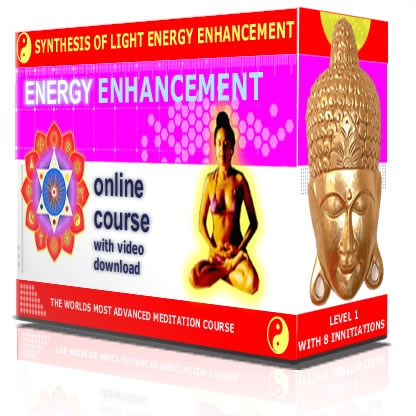
LIVE COURSES, INDIA AND IGUAZU FALLS
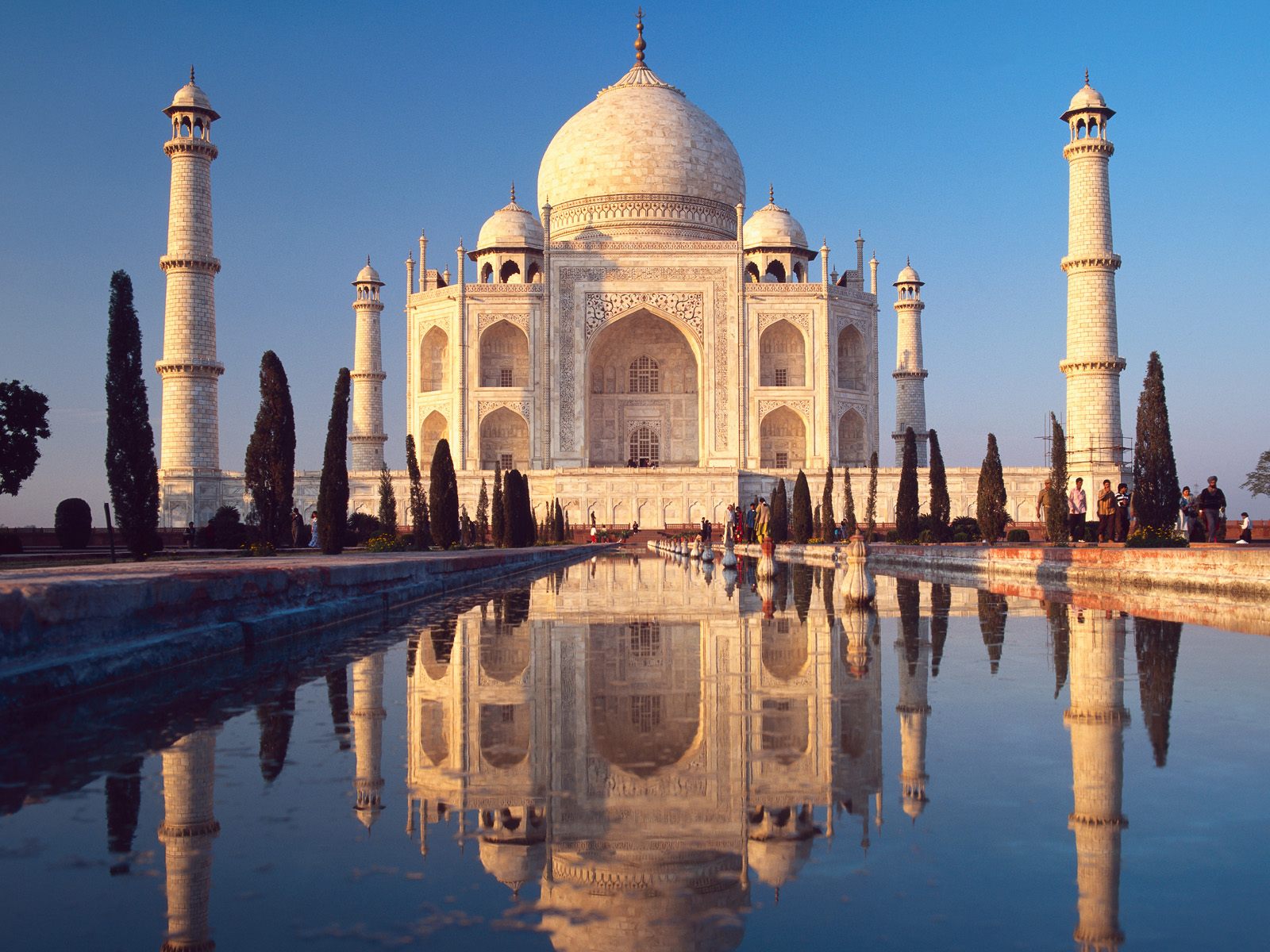
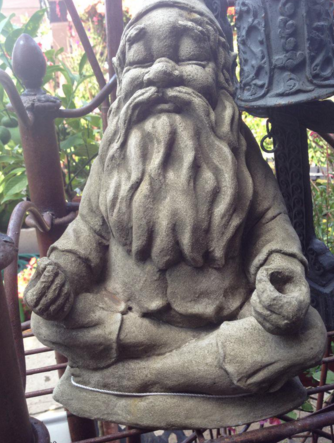
| ENERGY
|
GAIN ENERGY APPRENTICE
LEVEL1
|
THE ENERGY BLOCKAGE REMOVAL
PROCESS
|
THE KARMA CLEARING
PROCESS APPRENTICE LEVEL3
|
MASTERY
OF RELATIONSHIPS TANTRA APPRENTICE LEVEL4
|
|
ENERGY ENHANCEMENT TESTIMONIALS EE LEVEL1 EE LEVEL2 EE LEVEL3 EE LEVEL4 EE FAQS |